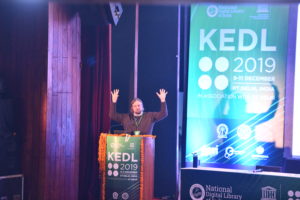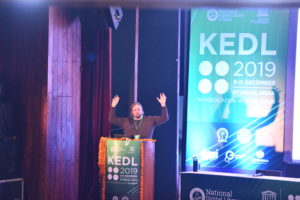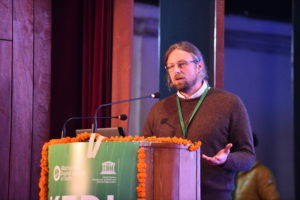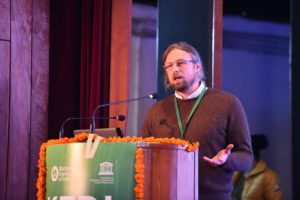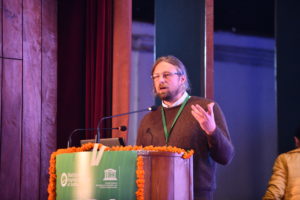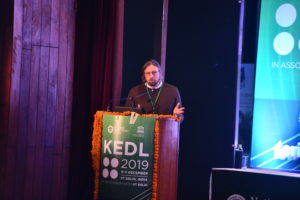9TH – 11TH DECEMBER 2019
SEMINAR HALL – IIT DELHI, INDIA
DBPEDIA AND THE CUSTODY OF LINKED OPEN DATA
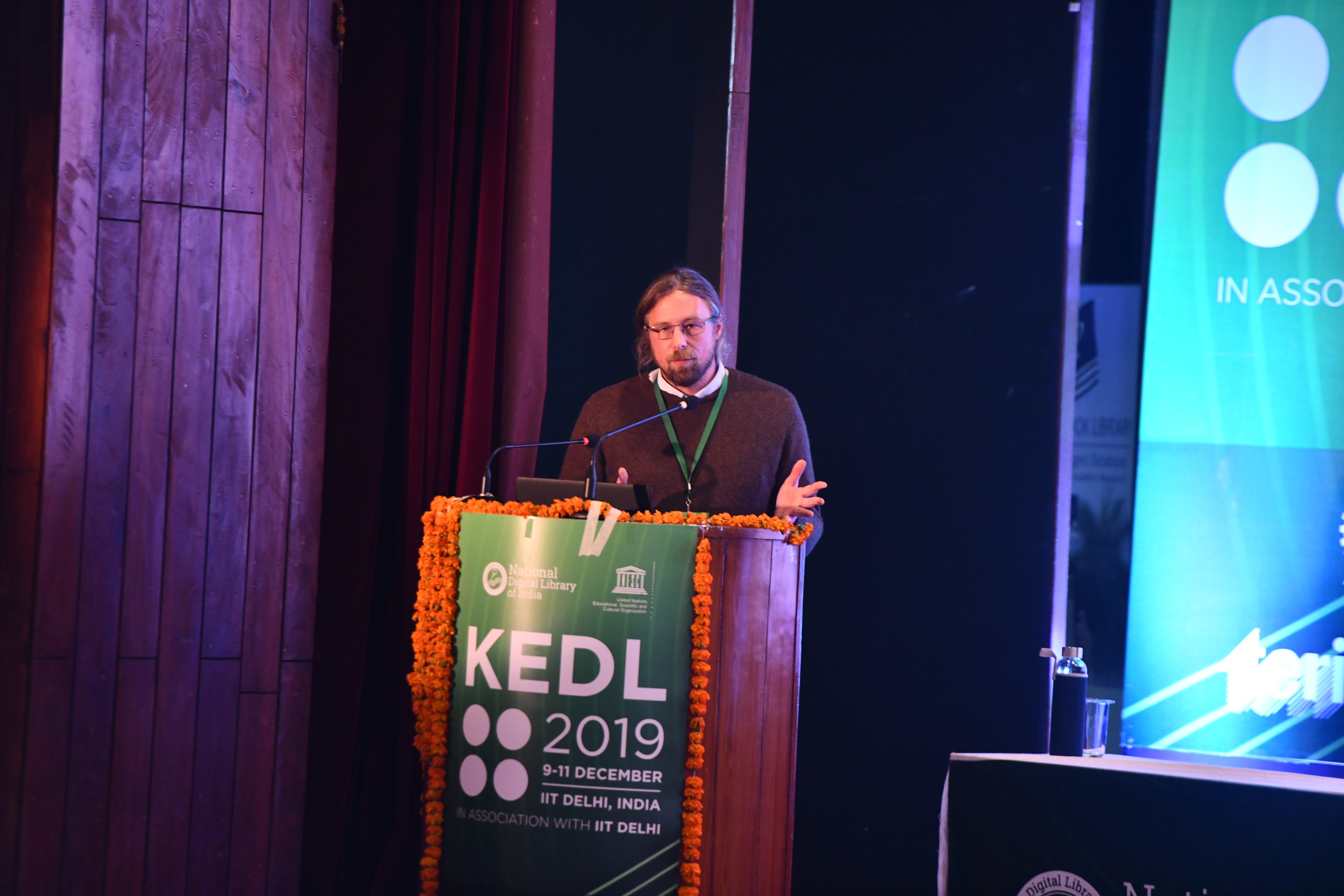
SEBASTIAN HELLMANN
Head of the “Knowledge Integration and Language Technologies
(KILT)” Competence Center at InfAI.
Executive Director and Board Member of the DBpedia Association
10th Dec
2:00PM-2:40PM
Sebastian Hellmann has completed his Ph.D. thesis under the guidance of Jens Lehmann and Sören Auer at the University of Leipzig in 2014 on the transformation of NLP tool output to RDF. Sebastian is a senior member of the “Agile Knowledge Engineering and Semantic Web” AKSW research center, which currently has 50 researchers (PhDs and senior researchers) focusing on semantic technology research – often in combination with other areas such as machine learning, databases, and natural language processing. Sebastian is head of the “Knowledge Integration and Language Technologies (KILT)” Competence Center at InfAI. He also is the executive director and board member of the non-profit DBpedia Association.
ABSTRACT
Nowadays, the media is full of exorbitant claims such as “We structure the data and knowledge of the World” and “we built [the largest] knowledge graph” . These claims are often accompanied with the value proposition that you can add and edit data in a web interface such as proposed by ORCID, FAIRsharing, Wikidata, Microsoft Academic. All of these centralised data acquisition and curation approaches are deviating from the original, decentralised idea of Linked Data. These centralised endeavours are exploiting some of the weaknesses in the decentralised, p2p The architecture of Linked Open Data, but do they really offer global solutions? Sebastian is a contributor to various open-source projects and communities such as DBpedia, NLP2RDF, DL-Learner and OWLG and wrote code in Java, PHP, JavaScript, Scala, C & C++, MatLab, Prolog, Smodels, but now does everything in Bash and Zsh since he discovered the Ubuntu Terminal. Sebastian is the author of over 80 peer-reviewed scientific publications (h-index of 21) and over 6000 citations and a not-yet-deleted Wikipedia article about Knowledge Extraction. Sebastian was chair at the Open Knowledge Conference in 2011, the Workshop on Linked Data in Linguistics 2012, the Linked Data Cup 2012, the Multilingual Linked Data for Enterprises (MLODE) 2012 workshop, the NLP & DBpedia Workshop 2014, the SEMANTiCS 2014, 2015 and 2016 conference as well as the KEKI Workshop 2016. In 2012, we held a hackathon at MLODE 2012 bootstrapping an initial version of the Linguistic Linked Open Data cloud, which led to the LIDER project and linguistic-lod.org that now publishes regular updates (thanks to John McCrae).
During the first half of the presentation, we will stress one of the most important properties of the Linked Data design, i.e. conceptual and technical scalability; a property, which has lead to Linked Open Data creating the largest knowledge graph on earth – the LOD Cloud. This Linked Data property of scalability is still the only existing approach to manage, access and grow the knowledge of the world into a global giant graph, which is able to capture the long tail of information domains, beyond the top 0.01% of entities of centralized approaches. DBpedia (http://dbpedia.org) was established over a decade ago and has become the most successful open knowledge graph and has bootstrapped, built up and glued together the Linked Open Data Cloud. As Linked Data (and Open Data in general!) grew to web-scale, we innovated the DBpedia Knowledge graph into a platform that is able to scale alongside and connect the ever-growing volume of web data. During the second half of the presentation, we will explain DBpedia’s new mission of “Global and unified access to Knowledge Graphs” and the new capabilities of the DBpedia platform, incl. the Databus and the Knowledge Library, which has the single purpose of providing support and coordination to decentralised data curation efforts: a centralized, global custody for decentralized Linked Open Data. Following this methodology, we can showcase how we can effectively connect all dataspaces (in particular GLAM) and build and export a useful, open knowledge graph from decentralised sources, with the potential to surpass even the Google Knowledge Graph.



